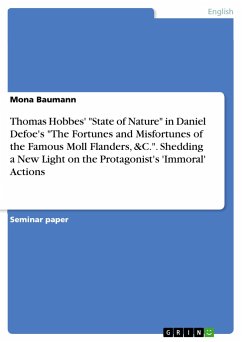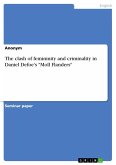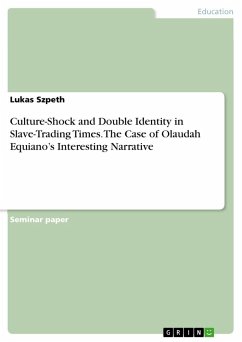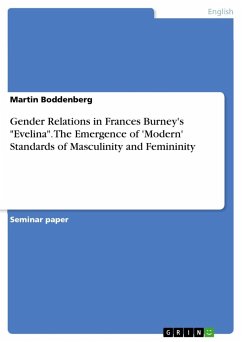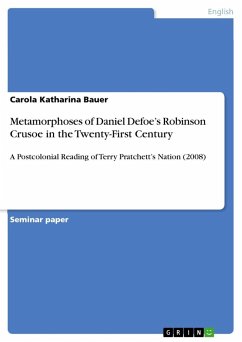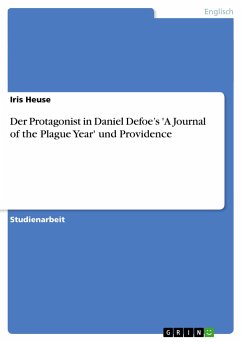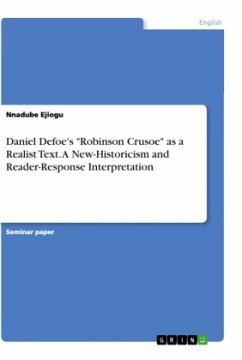Seminar paper from the year 2018 in the subject English Language and Literature Studies - Literature, grade: 1,0, University of Frankfurt (Main) (Institut für Anglistik und Amerikanistik), course: Self-Conscious Commodities: Defoe's Women, language: English, abstract: Natural law, throughout the seventeenth century, served as a touchstone for human beings as social and political animals, evolving into an ignitable mixture of moral and political doctrine and demanding the individual's rights of self-preservation and self-defence. The Catholic thinker Jean Gerson used the term 'state of nature' in the fifteenth century, followed by Hugo Grotius in the first half of the seventeenth century, though according to Richard Tuck, Thomas Hobbes was the first to coin it.Hobbes defined "the state of meer Nature" as a condition of constant competition, where every man fights the other and each individual is entitled to everything by nature. This environment is exclusively governed by the lawsof nature, which are rather inherent principles designed to ensure self-preservation. In this world without written laws, there is no justice, and everyone lives in fear and mistrust of the others.Born into the very same environment, in London's notorious Newgate Prison, as the illegitimate daughter of a thief, Moll Flanders seeks for a way to escape social misery all her life. Throughout the narration, she faces significant challenges but, despite numerous setbacks, continuously manages to defy her fate. This paper will shed light on the characters' "state of meer Nature" on a social level with particular focus on the protagonist: their world is dominated by predators, the characters constantly struggle for self-preservation, and, in this fight for appropriation of property to secure survival, are situated in an equilibrium of threats.
Hinweis: Dieser Artikel kann nur an eine deutsche Lieferadresse ausgeliefert werden.
Hinweis: Dieser Artikel kann nur an eine deutsche Lieferadresse ausgeliefert werden.

